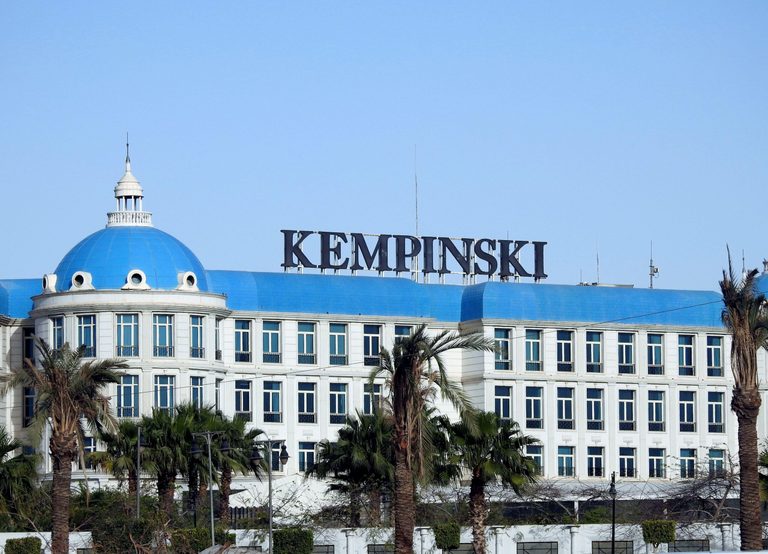Reforms linked to $8bn loans
‘Positive developments’ on GDP
Growing role for private sector
The International Monetary Fund has urged Egypt to move faster in selling off state assets to spur growth and reduce debt.
The country’s economic growth is forecast to increase from 2.4 percent in fiscal year 2024 to 4.3 percent in fiscal year 2026, according to Jihad Azour, director of the IMF’s Middle East and Central Asia Department.
Egypt’s inflation is expected to slow from 33 percent to 12 percent over the same period.
These “positive developments” demonstrate that it is making headway in implementing reforms linked to IMF support, Azour told reporters in Washington DC last week.
“We look forward to the next review to see an acceleration of the divestment strategy that is one of the key priorities,” Azour said during the annual spring meetings of the IMF.
This is “because of its critical impact on sustaining growth in Egypt, providing opportunities to the private sector and also helping in the effort that Egypt is pursuing in reducing the debt”.
Egypt’s private sector has been hampered by heavy military involvement in the economy, currency devaluation and rampant inflation.
The IMF and Egypt agreed a four-year reform programme in December 2022 in exchange for loans worth $3 billion.
The funding commitment was raised to $8 billion in March last year as the country faced currency volatility and disruption to shipping.
Egypt lost valuable transit fees from the Suez Canal because of Yemeni Houthi attacks on traffic in the Red Sea. Commercial vessel movement through the passage fell some 60 percent last year.
The IMF released an additional $1.2 billion of funding in March, bringing its total disbursement so far to $3.2 billion.
 Alamy via Reuters
Alamy via ReutersAlso in March, Egypt partnered with the International Finance Corporation, the World Bank’s private sector arm, to open 11 airports to private investment and management through public-private partnerships.
The effort falls under Egypt’s so-called asset monetisation programme, which was launched in 2023.
Rania Al Mashat, Egypt’s minister of planning, economic development and international co-operation, has called the aviation divestment plan a “game-changer”.
“Tourism in Egypt represents 15 percent of GDP; we are seeing a rebound in tourist arrivals as well as in revenues, so it’s a very attractive sector for private sector engagement,” she said at the IMF meetings in Washington last week.
The drive for more private sector involvement was reiterated this week on the opening day of the annual Arabian Travel Market exhibition in Dubai.
Egypt has set a target to attract 30 million tourists by 2031, but this can only be achieved if the number of hotel rooms is doubled.
“We go to the private sector and that’s the main driver in building new hotels and other tourism projects,” tourism minister Ahmed Issa told reporters in Dubai.
Today, land in Egypt is owned by four main groups – the civilian government, the military, religious institutions and private ownership.
The authorities have also pledged to sell scores of government companies but progress has been slow.
Al Mashat said investment banks were assessing the next steps in the sale of “a few” state-owned enterprises.
Register now: It’s easy and free
AGBI registered members can access even more of our unique analysis and perspective on business and economics in the Middle East.
Why sign uP
Exclusive weekly email from our editor-in-chief
Personalised weekly emails for your preferred industry sectors
Read and download our insight packed white papers
Access to our mobile app
Prioritised access to live events
Already registered? Sign in
I’ll register later



